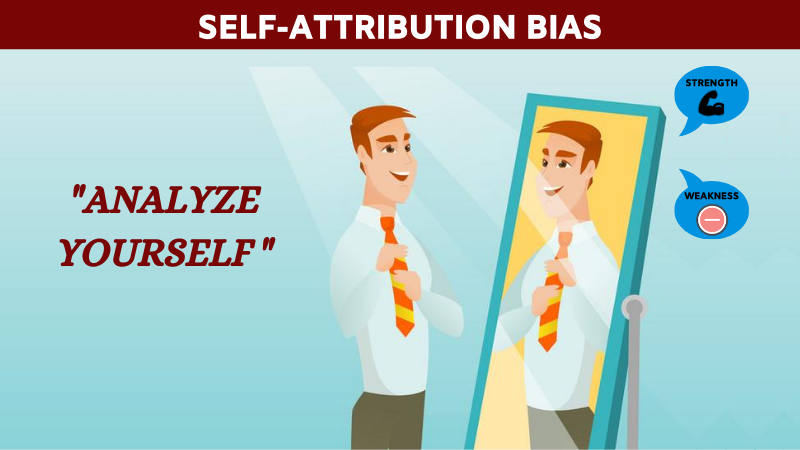The self-attribution bias is a cognitive bias that occurs when individuals attribute their successes to their own abilities, skills, or efforts, while attributing their failures or negative outcomes to external factors or bad luck. Essentially, people tend to take credit for their successes but avoid taking responsibility for their failures.
Explanations:
The self-attribution bias is related to self-preservation and the desire to maintain a positive self-image. People often want to see themselves as competent and successful, leading them to attribute positive outcomes to their own qualities and negative outcomes to external circumstances.
Examples:
Success in Sports: A person might attribute their victory in a sports competition to their hard work and skill, but blame a loss on the weather or an unfair referee.
Business Achievement: An entrepreneur may credit their business success to their innovation and decision-making but blame economic downturns for financial setbacks.
Academic Performance: A student might believe their good grades are the result of their intelligence and diligence, while attributing poor grades to a difficult teacher.
Solutions:
Honest Self-Reflection: Encourage honest self-reflection to assess the role of both internal and external factors in successes and failures.
Accountability: Accept responsibility for actions and decisions, whether they lead to success or failure, and use setbacks as opportunities for growth.
Attribution Reversal: Practice “attribution reversal” by considering how others might perceive your successes and failures from an external perspective.
Feedback and Perspective: Seek feedback and input from others to gain a more objective view of the factors contributing to outcomes.
Addressing the self-attribution bias involves recognizing the natural tendency to attribute success to internal factors and failure to external factors. By embracing accountability and honest self-reflection, individuals can achieve a more balanced and accurate assessment of their achievements and setbacks.
